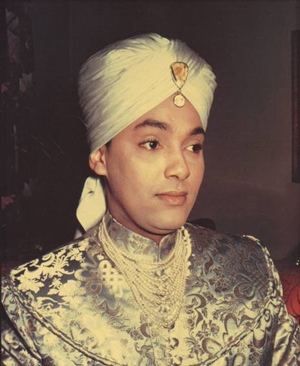Ina Ray Hutton (March 13, 1916 – February 19, 1984) was an American female band leader during the Big Band era of the 1930s and '40's. She was also the sister of band singer June Hutton.
Beautiful and talented, Ina Ray carried a secret to her grave. But before we discuss that, a little biographical info from Wikipedia follows below.
Ina Ray Hutton began dancing and singing in stage revues at the age of eight and attended Hyde Park High School on the South Side of Chicago. In the 1930s she appeared on Broadway in George White's Scandals and The Ziegfeld Follies.
In 1934 she was asked by a vaudeville agent to lead an all-girl orchestra, the Melodears. Hutton and her Melodears were one of the first all-girl bands to be filmed for Paramount shorts including Accent on Girls and Swing Hutton Swing and Hollywood feature films.
Although the group disbanded in 1939, in 1940 Hutton led an all-male orchestra that was featured in the film Even Since Venus (1944); it was disbanded in 1946. During the 1950s, she returned to the all-girl format for variety television programs including the Ina Ray Hutton Show for a local station on the West Coast.
Here's the secret to her story: Her parents were identified as "negro" or "mulatto" by census takers. According to Blackpast.org.:
Hutton was born Odessa Cowan at her parents' home in Chicago on March 13, 1916. Her mother, Marvel (Williams) Cowan, was a newlywed housewife, married to Odie Cowan, a salesman. By the time Odessa was three years old, she and her mother were living with her maternal grandmother, and her step-grandfather, a dining car waiter for a railroad. That year, Odessa’s sister, June, was born at home. When the census taker arrived a few months later, their father was not recorded as a resident of the family home.
Odessa and June grew up among black neighbors on Chicago’s South Side. Their mother played piano in dance halls and hotel ballrooms. Odessa studied dance with a prominent black teacher and choreographer, Hazel Thompson Davis. The Cowans' hometown black newspaper, The Chicago Defender, first wrote glowingly of Odessa’s performances when she was seven. But the next year, despite the fact that she had the same South Side address into her teens, mentions of Odessa Cowan in the Defender disappeared. By some accounts, that was the year she was “discovered” by a white vaudeville producer.
When watching Hutton perform to the segregated audiences of the day, she's quite soulful and jazzy, almost with an attitude of I'm pulling one over on you--I'm getting away with it--and I'm laughing all the way to the bank! Good for her! Here she is performing Truckin' and Suzy Q. Enjoy the show!




